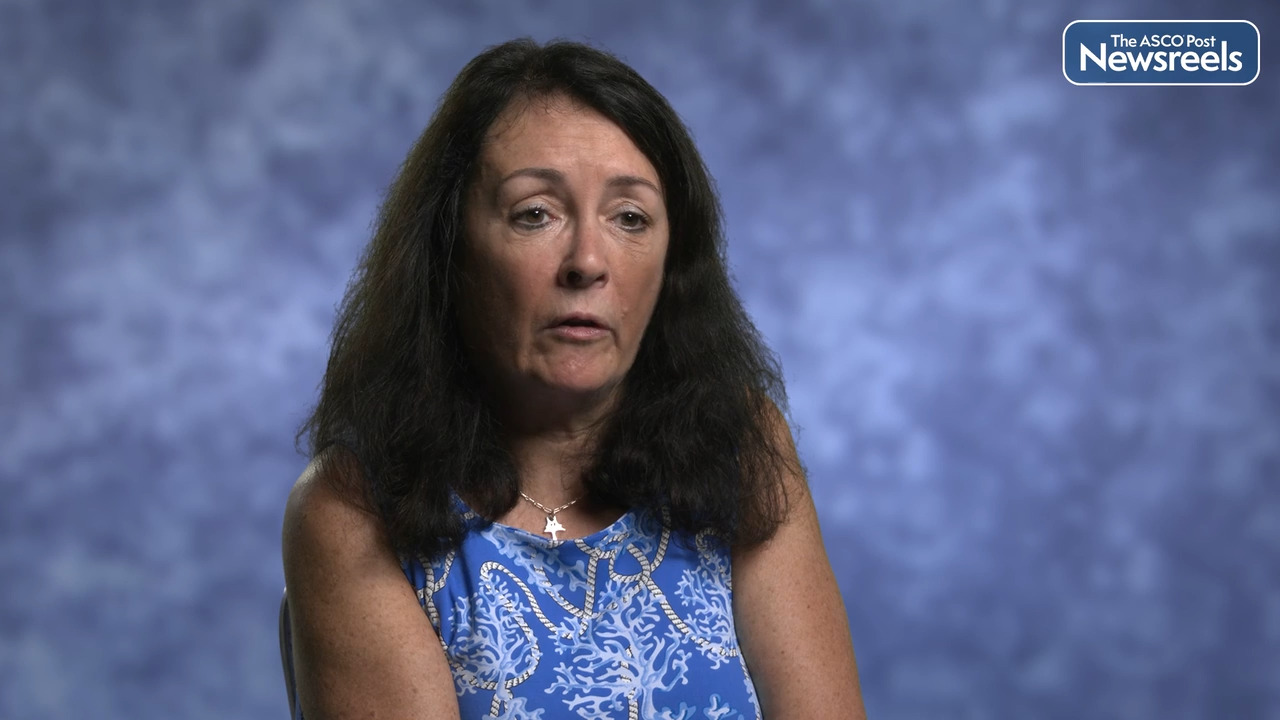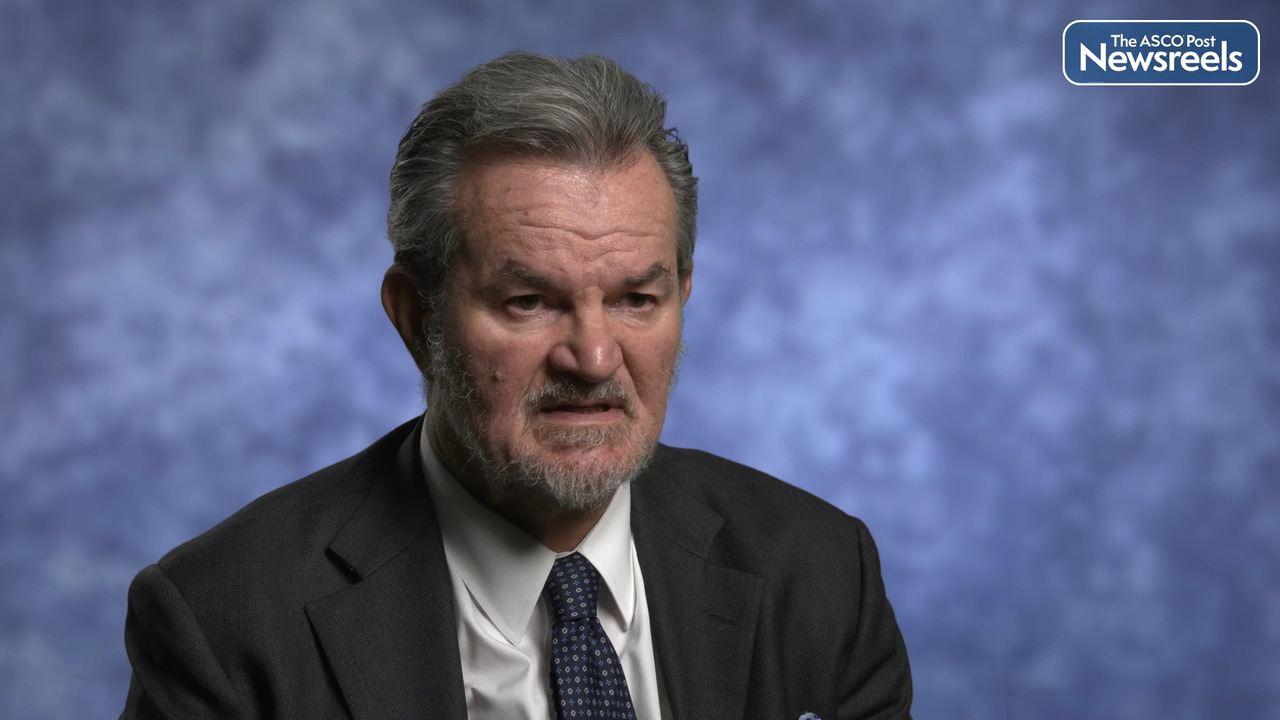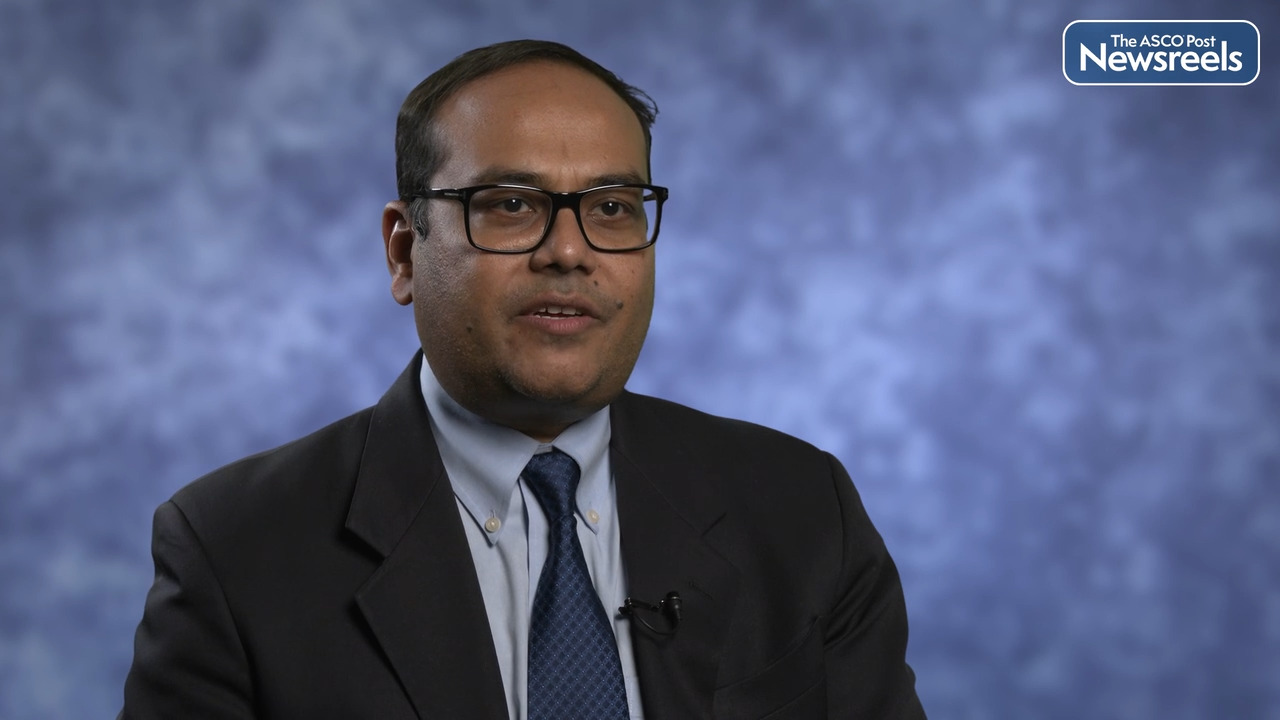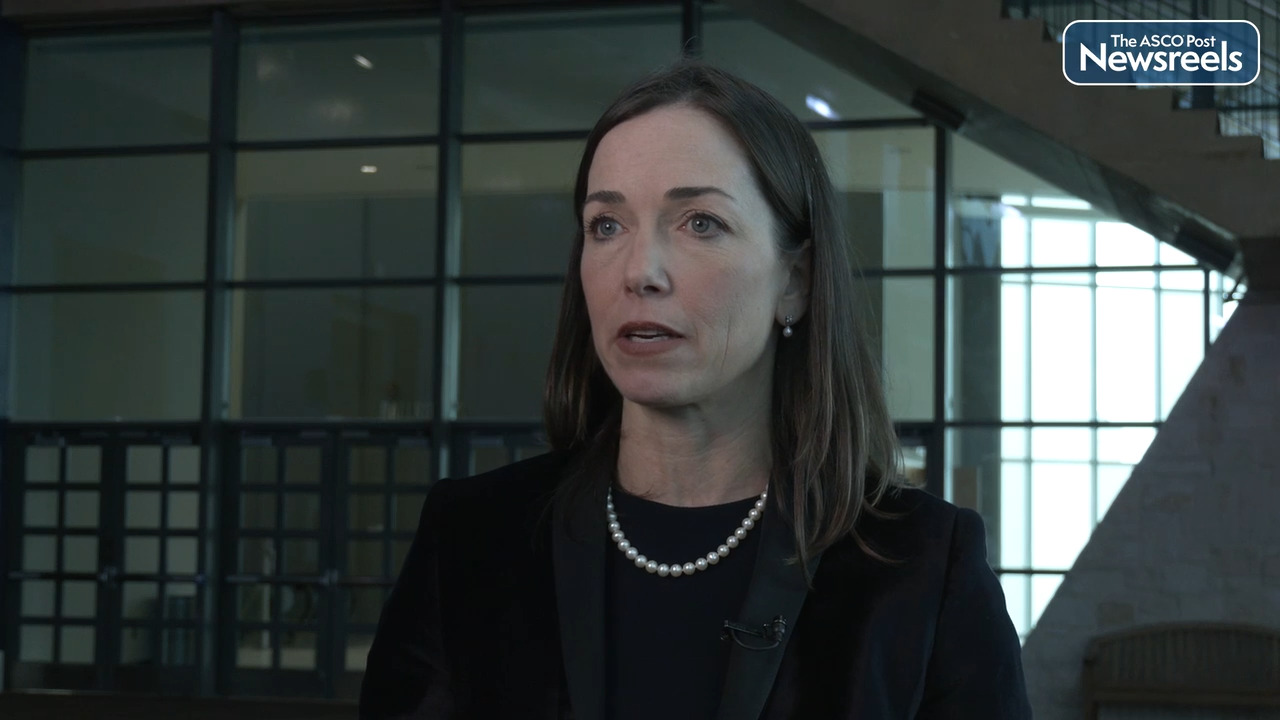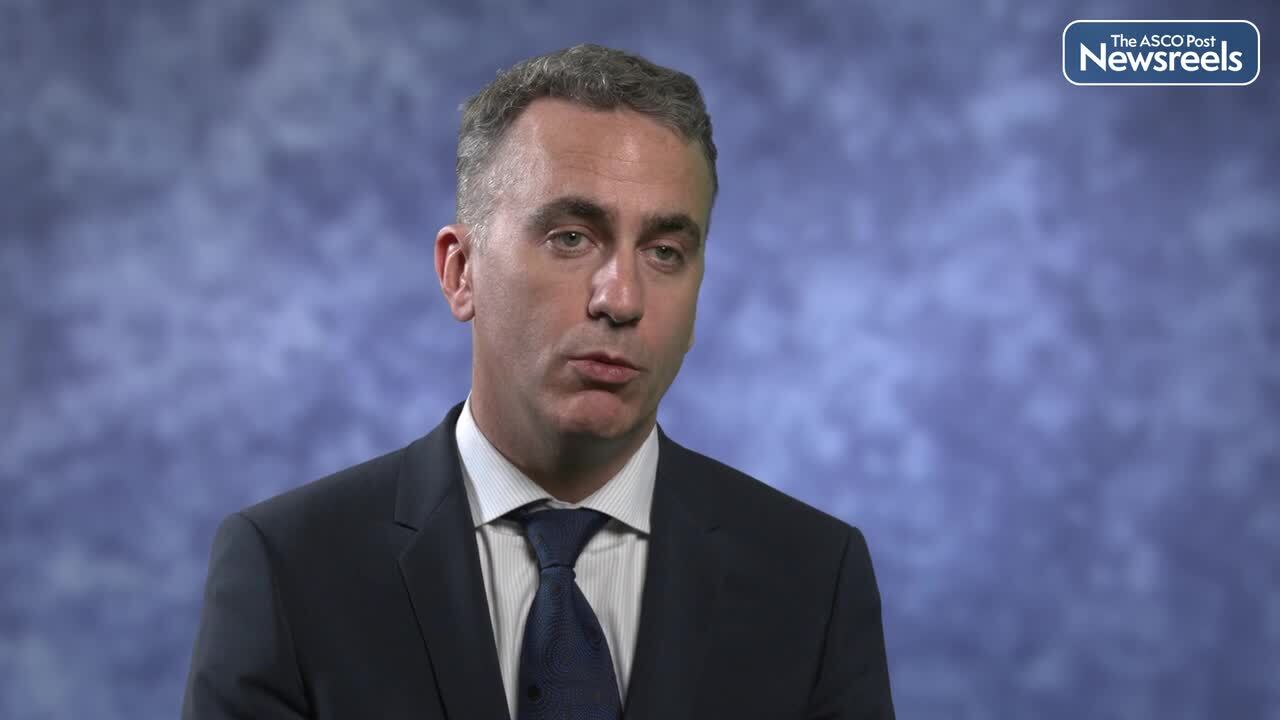Transcript
Disclaimer: This video transcript has not been proofread or edited and may contain errors.
The POSITIVE trial was designed to address the clinical conundrum that many of our young patients face, which is the desire to have the best breast cancer therapy possible, as well as the desire to have a child, a future biologic child, and to carry it, if they're able to. Especially for women with hormone receptor-positive breast cancer, where there's been historical concern that having a pregnancy might be akin to pouring gasoline on the flames, we've worried that that may increase the risk of a breast cancer recurrence and poor outcomes. There are retrospective data that suggests safety, but the positive trial is the first prospective trial to address this issue.
Women in the PSOTIVE trial were enrolled if they desired pregnancy and had taken at least 18, and up to 30, months of endocrine therapy. They had to be age 42 or younger and remain premenopausal and have no evidence of clinical recurrence. They enrolled and then had a mandatory three-month washout to get rid of the endocrine therapy, and then they were encouraged to get pregnant, carry that pregnancy, nurse if they wanted to, and resume endocrine therapy, all ideally within two years. They're being followed for their breast cancer outcomes as well as their fertility and offspring outcomes.
The results of the POSITIVE trial revealed that the recurrence rates, both breast cancer-free interval as well as distant recurrence rates, were actually fairly modest. There was about an 8.9% risk of any breast cancer event at 41 months, and half of those were distant recurrences. There were 44 breast cancer events, 22 of which were distant recurrences. That met the safety criteria, which were pre-specified in terms of a safety threshold, it was below the safety threshold.
We also used a historical control group that we calculated, matched from the SOFT and TEXT cohorts, the trials where women were enrolled and received either Tamoxifen or ovarian suppression plus Tamoxifen or AI. We included women in the control cohort that would've been eligible for POSITIVE and then matched them by important prognostic characteristics and treatment. When we compare them to this control cohort, the women in POSITIVE looked to do just as well as the women who did not take a temporary interruption of endocrine therapy to become pregnant.
Some results of the POSITIVE trial suggest that it's not only safe to become pregnant, at least in the short term after a breast cancer diagnosis following the POSITIVE criteria, but also, the vast majority of women actually did become pregnant. Over time, about 74% of patients did become pregnant, most within the first two years. We find these data quite reassuring and really important for our young patients who want to not only survive breast cancer, but thrive in their survivorship.
The POSITIVE trial was an international collaboration. We know that it was really hard to do, because people had to come together to help support these patients. It's not a hot new drug we were testing, it was a very altruistic move on the part of patients to be willing to participate in this, they can get pregnant on their own. The really important thing is that we're happy with the results and they'll provide really good data for patients making this important decision, but we only have 41 month follow-up. The critical feature for POSITIVE is we need long-term follow up. We want to follow these women for at least 10 years so that we can know that it's not only safe in the first few years, but it's safe in the long term. That's going to be really critical, particularly in the setting of hormone receptor-positive breast cancer, where we know there is the risk of late recurrence.
